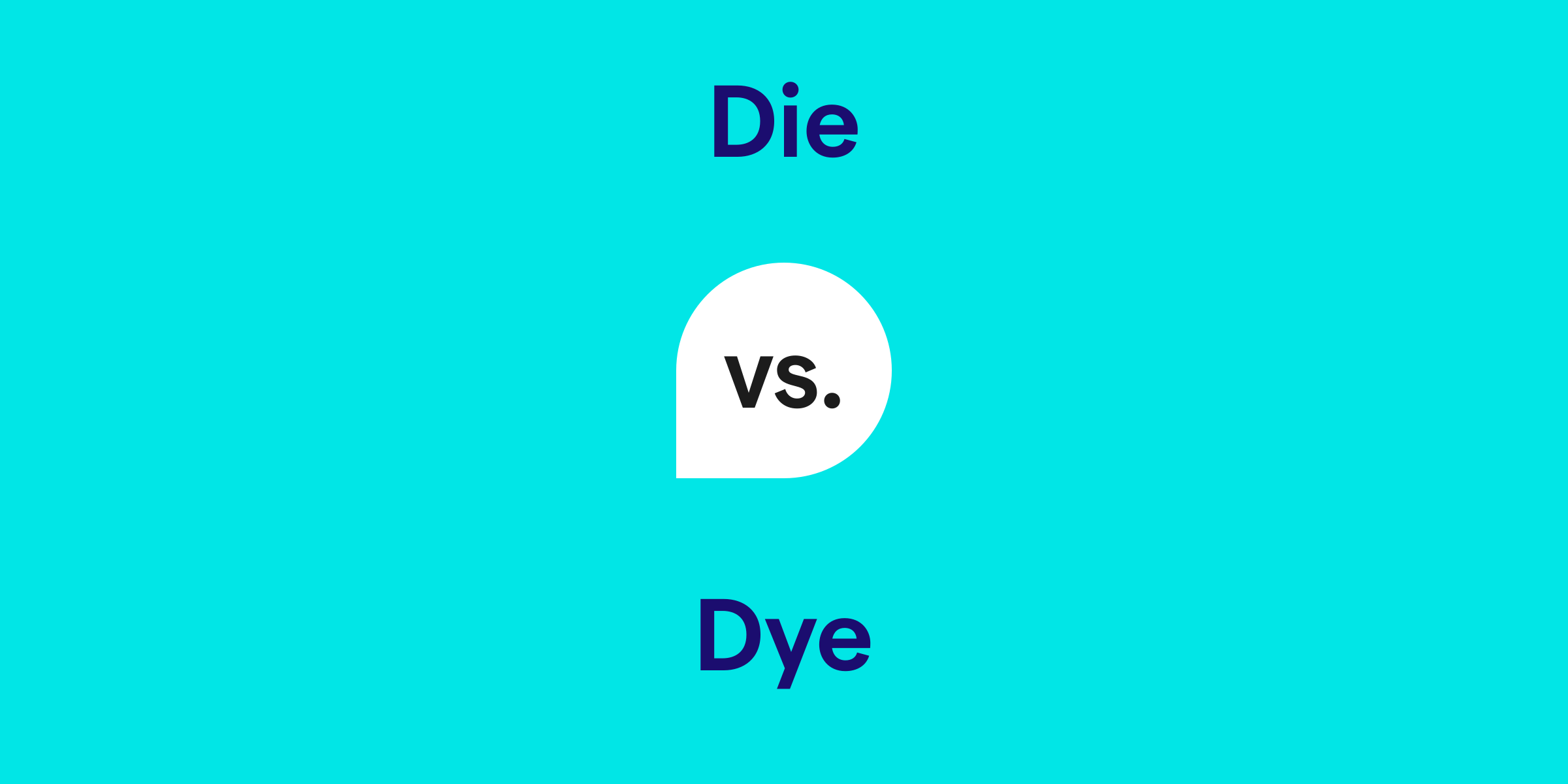Die vs. Dye: What's the Difference?
The words die and dye may sound identical, but their meanings are entirely distinct. Die is a verb that means to cease living or to come to an end, whereas dye refers to a substance used to change the color of something, and it is also used as a verb to describe the process of applying this substance. Understanding the context in which each word is used is key to grasping their differences.

How do you use the word die in a sentence?
The term die is commonly used in the context of life and death. It can refer to the end of life for living organisms or the cessation of existence for inanimate objects. Additionally, die can be used metaphorically to express the complete cessation of an activity or process.
Examples of die in a sentence
- The doctor did everything possible, but the patient died during surgery.
- Many plants die in the first frost of the season.
- After a lengthy discussion, the committee's proposal died due to a lack of support.
How do you use the word dye in a sentence?
The word dye is primarily associated with changing the color of fabric, hair, or other materials. As a verb, it's the action of applying color, and as a noun, it refers to the coloring agent itself. It's often used in the context of fashion and crafts to describe the process of adding vibrant colors or to correct color fading in materials.
Examples of dye in a sentence
- She decided to dye her hair purple for the summer music festival.
- To restore the vintage dress, they used a natural dye made from plants.
- The artisan specializes in dyeing wool with techniques passed down through generations.
Die and dye definition, parts of speech, and pronunciation
Die definition:
Die (verb): To stop living; to cease to exist; used for organisms, as well as for inanimate objects in metaphorical or hyperbolic contexts.
Die parts of speech:
Die pronunciation:
/daɪ/
Dye definition:
Dye (noun and verb): As a noun, a substance used to color materials; as a verb, the process of applying a dye to an object.
Dye parts of speech:
Dye pronunciation:
/daɪ/
Die (verb): To stop living; to cease to exist; used for organisms, as well as for inanimate objects in metaphorical or hyperbolic contexts.
Die parts of speech:
- As a verb: 'The battery in my phone died, so I couldn't call for help.'
Die pronunciation:
/daɪ/
Dye definition:
Dye (noun and verb): As a noun, a substance used to color materials; as a verb, the process of applying a dye to an object.
Dye parts of speech:
- As a noun: 'The dress was made with an organic dye for a more natural look.'
- As a verb: 'She is dyeing her curtains to match her new bedspread.'
Dye pronunciation:
/daɪ/
Die vs. dye in a nutshell
Despite their identical pronunciation, die and dye serve different purposes. Die is a verb that conveys the end of life or cessation, applicable to both living beings and, metaphorically, to events or objects. On the other hand, dye can be both a noun and a verb related to the act of changing an object's color. Remembering their distinct contexts will help you avoid mix-ups and use each word accurately.
Get AI Writing Assistance Wherever You Type
Make sure your vocabulary is on point and every punctuation mark is in the right place, no matter where you’re working. Grammarly works across more than 1 million websites and apps so you can improve your writing without copying, pasting, or breaking focus.

More Commonly Confused Words
Interest piqued? Pore (not pour) over other commonly confused words to help your writing reach peak (not peek) performance.